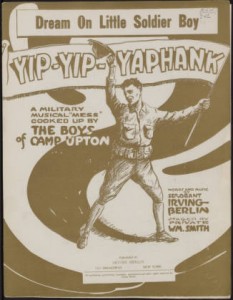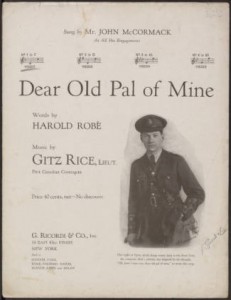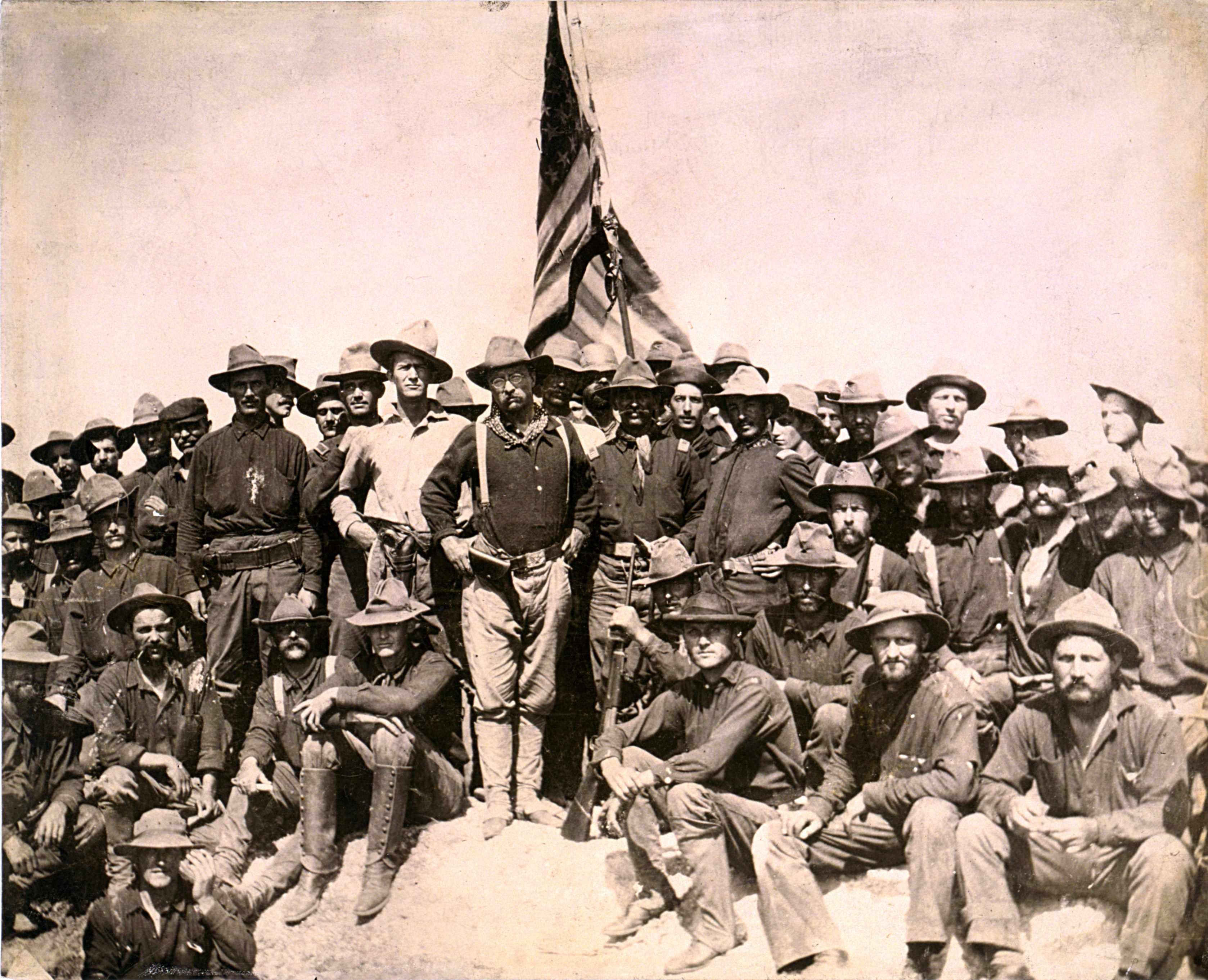Audio from Gitz Rice’s 1918 song, Dear Old Pal of Mine
Wartime is an excellent platform to explore differences in gender relations and expectations. The music of the Spencer Collection vividly shows us some of the prevalent themes that were widely accepted in the early 19th Century: men had to fight for their women and women had to wait for their men. Songs such as Knit, knit, knit, and I’m gonna pin a medal on the girl I left behind show that men fulfilled the role of the soldier while women were expected to fill the role of the weeping woman who patiently longed for their husband/son to return home.
Irving Berlin composed this song in 1918 and it is an excellent guide to how men and women were supposed to act. The man in the song wins a medal but explains to his friends that he’s going to pin it to his girlfriend back home because, “She deserves it more than I.” The aforementioned girl earned this right because when she said goodbye to him she held back her tears and hasn’t complain in the letters she sent him. This, the song is arguing, is the perfect relationship: the man does his duty and the woman doesn’t complain and faithfully waits for him to return.
The themes in Mammy’s Dixie Soldier Boy are very similar with the first song. Composed by Norman Landman in 1918, the song reiterates what makes a good woman in wartime. However, unlike the previous song, this one has the mother breaking down into tears after doing her best to be stoic and understanding of her son’s military service.
Another song composed by Irving Berlin in 1918, this one allows us to glimpse at what a young soldier is dreaming about while fighting overseas in Europe. It is a touching piece, and does much to humanize a young man who is fighting in a terrible conflict. Chief among the topics of his dreams is, “the girl [he] left behind.” In this regard, we can see that the song is arguing that males use the thought of the women they love as a coping mechanism, especially in times of war.
Gitz Rice follows this trend with his song Dear Old Pal of Mine, written in 1918. Opening with the line, “All my life is empty, since I went away,” the protagonist mournfully yearns for his beloved’s smile and “tender loving way.”
The last song of this segment was composed by Ivan Caryll in 1917. Women’s contributions to the war effort in World War One are often unnoticed, and this song is an excellent example of the little things that they would do to help. Although the majority of women worked in munitions factories and as nurses, the production of textiles was instrumental to the war effort. 1
Click here for an excerpt from Joshua S. Goldstein’s book, War and Gender.
Return to the homepage here.
- “Women’s Contribution in WW1,” Schoolworkhelper, http://schoolworkhelper.net/woman%E2%80%99s-contribution-in-ww1/. ↩






 Teddy Roosevelt and his Rough Riders, 1898
Teddy Roosevelt and his Rough Riders, 1898